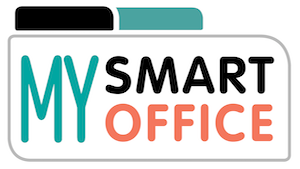The lowdown on charging for project proposals
Do you spend late nights and weekends prepping quotes? Is your time taken up with prospects who aren’t that serious, are looking for the cheapest price or whose dreams are bigger than their budget? Here’s how to get paid for your time and get the work you want!
The best way to find out who’s serious about working with you is to value your time and experience and be paid for tapping into it. A client who values your expertise wouldn’t hesitate to pay for a detailed building estimate covering the agreed scope of work. After all, it’s a valuable and critical service that will give them peace of mind and help future decision making. A potential client who doesn't want to pay for an in-depth proposal either doesn’t see value in what you offer, or is price checking and doesn’t intend building with you. In my experience, many builders find charging for proposals a big plus – they get very engaged clients and secure bigger and more profitable projects.
Build trust
Start showing your value from the very first contact. Make sure your website and social media highlights the quality of your work. Always be efficient and a great communicator so there’s no question that you’re the builder people want to work with. If a prospective client asks over the phone whether you charge for quotes, chances are they don’t want to pay for one and probably aren’t the right client for you.
Telling prospective clients
A good time to talk about the building proposal is at your first face to face meeting. Run through your process for preparing to build and present a letter of engagement outlining the cost of the service, the benefits and what they’ll receive. I find that most clients will sign then and there or, at worst, will send the proposal through a few days later. Don’t dwell on clients who don’t follow through. You’re simply weeding out the tyre kickers and making way for more engaged clients.
Accuracy is everything!
Your proposal should include a comprehensive review of the plans, quantifying time and materials and include quotes from subtrades. Where possible, narrow down the client’s options and selections, so you can include costs for the items and finishes they choose. Be sure to work through the preliminary and general items needed for the duration of the building project and include an allowance for recovering overheads. Any items that are difficult to quantify can be listed as sums - include a comprehensive list of tags and notes to cover the inclusions and exclusions from the proposal. A software like Builda Price will help; it's very structured and acts as a checklist, making it difficult to leave anything out.
It's all in the presentation
Once you’ve put together a detailed, accurate and professionally laid out proposal, you’re ready to present to the clients. The more information and detail you give them, and the more transparent you are, the more trust they’ll have in you. Be across the details in the proposal and the scope of work you have priced for. Be prepared for questions and be straight up in your answers. You’ll find you mostly get the same questions, so you can have reasonably pre-formulated answers.
Remember, you want clients that hire you not because you’re the cheapest, but because they trust you’ll take good care of them and their biggest asset. Start valuing your time and expertise - charging a fee for an in-depth building proposal is not only a viable option, but really can help you secure the clients and work you want.
Work with us:
Step one - Review
Let's chat about your business, the tasks you dislike, and look at your current admin systems.
Step two - Options
Whether you know where to start or you need guidance, let's discuss your priorities, options, and business goals.
Step three - Get started
Reduce your to-do list. Agree on an action plan and let us start implementing the tasks for you.
